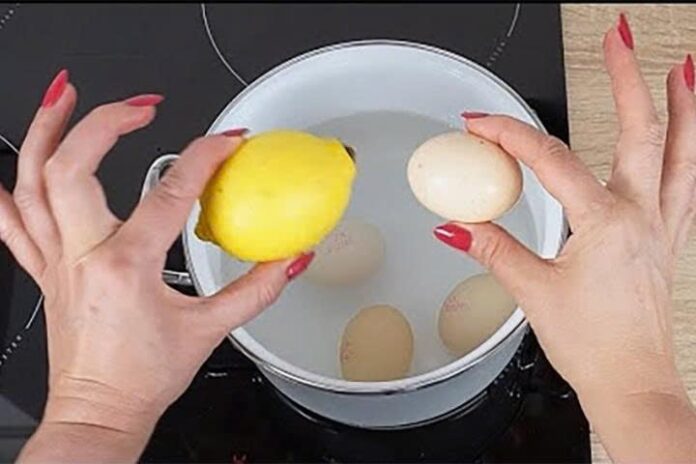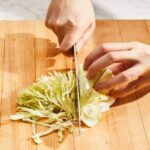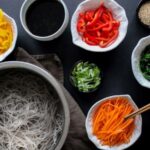Boiling eggs may seem like a simple task, but not everyone can do it perfectly. Eggs are prone to cracking, and the shells can be difficult to peel, resulting in an unsightly dish. However, a simple trick involving lemons can solve most of these problems and help you achieve perfectly boiled eggs.
Why add lemon when boiling eggs?
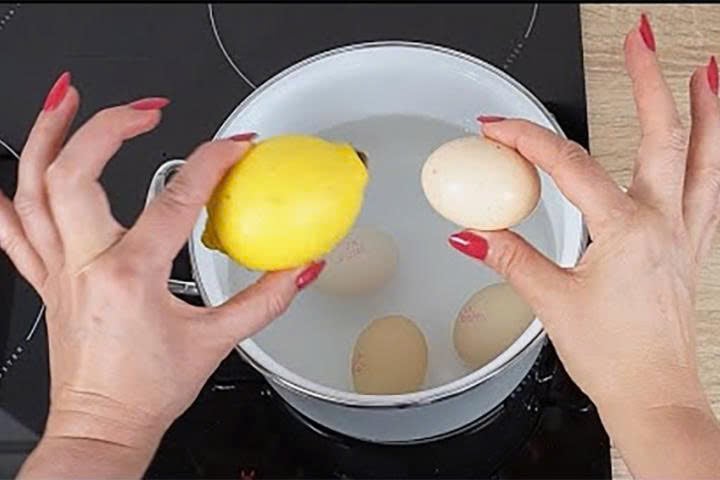
Lemons are not only a familiar fruit in the kitchen but also a handy helper in many cooking tips. By adding a few slices of lemon or a dash of lemon juice to the boiling water, you can achieve the following three notable benefits:
1. Easier egg peeling
One of the common issues when boiling eggs is the difficulty in peeling the shells, especially with fresh eggs. This is because the membrane between the shell and the egg white is still tough and firmly attached.
When you boil eggs with lemon, the mild acid from the lemon weakens this membrane. As a result, after the eggs are cooked and soaked in cold water, the shells come off quickly without damaging the whites.
2. Reduced risk of cracked eggs
Dropping cold eggs into hot water or boiling them over high heat can cause the shells to crack. The acid from the lemon gently softens the outer shell, reducing the temperature shock and decreasing the likelihood of cracks.
3. Cleaner eggs
Many types of eggs, such as free-range chicken or duck eggs, often have dirty shells or slight lime deposits. The acid in the lemon helps gently clean these stains, resulting in brighter and cleaner-looking shells after boiling.
The correct way to boil eggs with lemon
Applying this lemon trick is simple. Here’s what you need to do:
Ingredients:
Eggs (as needed)
1-2 teaspoons of lemon juice (or a few fresh lemon slices)
Water to cover the eggs by about 2-3 cm
Instructions:
- Arrange the eggs in a pot and add water to cover them by 2-3 cm.
- Add 1 teaspoon of lemon juice or 2-3 fresh lemon slices to the water.
- Bring the water to a boil, then reduce the heat to low and simmer for 8-10 minutes, depending on your preference for soft or hard-boiled eggs.
- Once the eggs are cooked, remove them from the pot and immediately soak them in a bowl of cold water for 5-10 minutes to make the shells easier to peel.
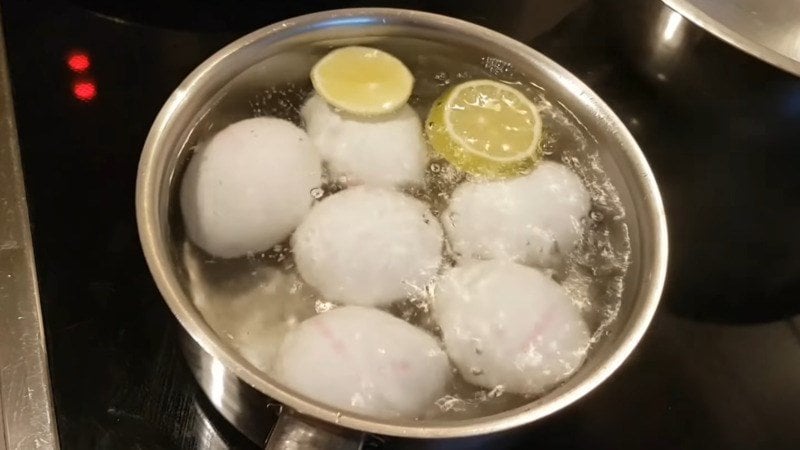
Additional tips for easier egg peeling
In addition to using lemon in the boiling water, you can also try the following tips to enhance the effect:
- Add a pinch of salt to the water: This helps harden the egg’s outer membrane, reducing cracks and making the shell easier to peel.
- Soak the eggs in cold water after boiling: This causes the membrane to shrink, making it easier to separate from the shell.
- Gently roll the eggs after cooling: This creates even cracks, making the shell easier to peel without breaking the white.
Important notes for optimal results
- Don’t overdo the lemon: A small amount of lemon juice or a few slices are enough. Using too much will give the water a strong sour taste, affecting the flavor of your eggs.
- Choose fresh eggs: This trick is especially effective with fresh eggs, as they tend to have tougher membranes that are harder to peel.
- Avoid boiling the water too vigorously: Reduce the heat to a gentle simmer after reaching a boil to prevent cracking or uneven cooking.
- Keep the pot uncovered: This allows steam to escape, reducing the pressure and the risk of cracking.
Will the eggs absorb the lemon flavor?
Some people worry that adding lemon to the boiling water might affect the taste of the eggs or reduce their nutritional value. However, in reality, the lemon only affects the outer shell and membrane. As long as the shell remains intact, there is no chance of the lemon juice penetrating the egg white or yolk, so you can rest assured that your eggs will retain their original flavor.
Using lemon when boiling eggs is a small trick that can make a big difference in your kitchen. It not only makes peeling easier but also keeps the eggs intact and aesthetically pleasing. If you haven’t tried this method before, give it a go at your next meal and experience the difference for yourself.
“The Ultimate Guide to Crispy, Tangy Fried Squid: A Mouthwatering Delight”
Squid fried in fish sauce is a familiar dish, but not everyone knows the secret to achieving that crispy, savory restaurant flavor. This article will reveal the step-by-step guide to selecting the finest ingredients and creating a mouthwatering sauce, empowering you to master this delicacy in your own kitchen.
“The Ultimate Fish Transformation: Immerse Any Fish in This Magical Liquid to Eliminate Odor, Enhance Sweetness, and Amplify Flavor”
When it comes to preparing fish, whether it’s from the sea or freshwater sources, there’s a simple trick to ensuring your final dish is “just right”. By soaking and rinsing the fish in these specific types of water, you can eliminate any fishy odor, resulting in firmer and more delicious meat. This process guarantees a more precise and delectable outcome for your culinary creations.


























